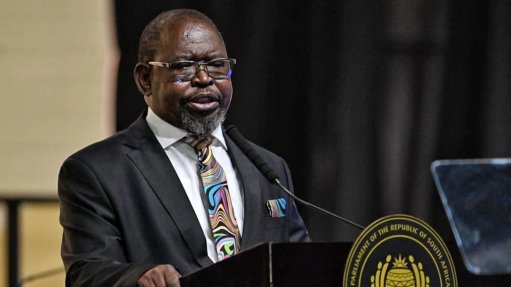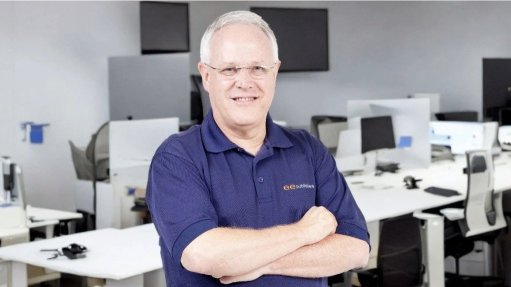Structural reforms needed for growth in South Africa, collaboration crucial – BLSA
Growth in South Africa cannot occur without underlying structural reforms and, to accelerate the implementation of structural reforms, effective collaboration between business, labour and government remains crucial.
The launch of the second phase of the Government-Business Partnership aims to deepen reforms, boost investment and foster positive national sentiment with the support of business organisation Business Leadership South Africa (BLSA) and many of its members.
"By working together, we can seize this window of opportunity and build a more prosperous and equitable nation," BLSA said in a statement.
Three quarters free of loadshedding are owing in part to years of hard work by the National Energy Crisis Committee to deliver on the Energy Action Plan, which was drawn up by the Presidency's Operation Vulindlela.
Progress is also being made on implementing a Just Energy Transition in the wake of the climate negotiations at the United Nations Conference of the Parties 29.
There has also been some progress in dealing with South Africa's logistics crisis. Figures from its ports show that wait times have been reduced since the worst of the crisis, and there are also improvements in the flow of goods on rail, the organisation said.
This year has provided a wealth of evidence that when the private sector is able to partner fully with government and get into solution-mode, the country can successfully deliver an improved business environment. In response, business confidence is showing improvement.
"We have had three successive quarters of improvement in confidence, with the third quarter reading at the highest level we’ve seen in over two years," BLSA said.
Investment decisions are made by individual investors and companies and not by a collective. When the prospects of an acceptable return are not there, they will not invest, no matter how much they are encouraged or cajoled.
Conversely, when the investment outlook improves and confidence returns, a wave of investment is likely to follow. This is why former US Treasury Secretary Larry Summers often said that "confidence is the cheapest stimulus".
Business believes that a great many of the country's seemingly-intractable problems are solvable. But there is still much more to do.
While the energy sector has made strides, the road ahead is still fraught with obstacles. The Electricity Regulation Amendment Act has faced legal hurdles, highlighting the complexity of implementing reforms, the organisation said.
Further, the disappointing third-quarter GDP growth figures revealed that parts of the economy are still struggling, particularly agriculture.
"The work we are doing through the National Logistics Crisis Committee will help, but climate and weather also play [a role]. Challenges persist in the logistics sector and, without urgent intervention, water supply is clearly the next major crisis area," the organisation said.
Government has made progress in dealing with the bulk water infrastructure end of the value chain, and the National Water Resources Infrastructure Agency was established earlier this year to ensure that the right dams and connecting infrastructure were developed.
"But we are seeing serious failures at the local government level, which are catastrophic for business," BLSA highlighted.
Africa also remains vulnerable to the escalating uncertainty of the international geopolitical arena. It is vital that regional cooperative agreements such as the African Continental Free Trade Area are supported and enabled to build resilience of local trade and supply-chain networks.
"We have seen significant changes to our government and the shape of the networks contributing to the nation’s success, but the underlying problems remain the same.
"The single biggest opportunity to drive poverty reduction and inclusion is to stimulate economic growth and investment. Higher levels of economic growth are an absolute precondition for a more inclusive economy," it emphasised.
Article Enquiry
Email Article
Save Article
Feedback
To advertise email advertising@creamermedia.co.za or click here
Press Office
Announcements
What's On
Subscribe to improve your user experience...
Option 1 (equivalent of R125 a month):
Receive a weekly copy of Creamer Media's Engineering News & Mining Weekly magazine
(print copy for those in South Africa and e-magazine for those outside of South Africa)
Receive daily email newsletters
Access to full search results
Access archive of magazine back copies
Access to Projects in Progress
Access to ONE Research Report of your choice in PDF format
Option 2 (equivalent of R375 a month):
All benefits from Option 1
PLUS
Access to Creamer Media's Research Channel Africa for ALL Research Reports, in PDF format, on various industrial and mining sectors
including Electricity; Water; Energy Transition; Hydrogen; Roads, Rail and Ports; Coal; Gold; Platinum; Battery Metals; etc.
Already a subscriber?
Forgotten your password?
Receive weekly copy of Creamer Media's Engineering News & Mining Weekly magazine (print copy for those in South Africa and e-magazine for those outside of South Africa)
➕
Recieve daily email newsletters
➕
Access to full search results
➕
Access archive of magazine back copies
➕
Access to Projects in Progress
➕
Access to ONE Research Report of your choice in PDF format
RESEARCH CHANNEL AFRICA
R4500 (equivalent of R375 a month)
SUBSCRIBEAll benefits from Option 1
➕
Access to Creamer Media's Research Channel Africa for ALL Research Reports on various industrial and mining sectors, in PDF format, including on:
Electricity
➕
Water
➕
Energy Transition
➕
Hydrogen
➕
Roads, Rail and Ports
➕
Coal
➕
Gold
➕
Platinum
➕
Battery Metals
➕
etc.
Receive all benefits from Option 1 or Option 2 delivered to numerous people at your company
➕
Multiple User names and Passwords for simultaneous log-ins
➕
Intranet integration access to all in your organisation


















